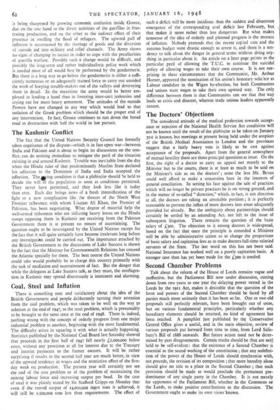Second Chamber Problems
Talk about the reform of the House of Lords remains vague and ineffective, but the Parliament Bill now under discussion, cutting down from two years to one year the delaying power vested in the Lords by the 1911 Act, makes it desirable that the question of the form and powers of the Second Chamber should be faced by all parties much more seriously than it has been so far. One or two old proposals still perfectly relevant, have been brought out of store, but on various fundamental principles, particularly whether any hereditary elements should be retained, no kind of agreement has been reached. A pamphlet just published by thf Conservative Central Office gives a useful, and in the main objective, review of various proposals put forward from time to time, from Lord Salis- bury's Bill of 1888 onwards. But future action need not be deter- mined by past disagreements. Certain truths should be (but are not) held to be self-evident: that the existence of a Second Chamber is essential to the sound working of the constitution ; that any redefini- tion of the power of the House of Lords should synchronise with, not precede, the revision of its composition ; that mere heredity alone should give no title to a place in the Second Chamber ; that such provision should be made as would preclude the permanent pre- dominance of any single party in the Chamber. It is not merely for opponents of the Parliament Bill, whether in the Commons or the Lords, to make positive contributions to the discussion. The Government ought to make its own views 'known.


































 Previous page
Previous page